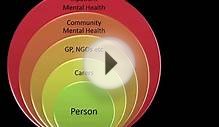
Nurses Mental Health problems
But what about other professions where workplace stress can exacerbate or create underlying mental disorders?
No profession faces more challenges that that of nursing and its ancillary roles of CNA and home health aide. Physicians step in for consultative purposes, routine examinations, updates, and other interventions related to diagnosis and treatment planning, but it is the nursing staff that must take on the burden of implementing the care on a face-to-face basis for long hours. The demands of patients, the challenges of working with a team, and the lack of on-site training that might relieve stress all place nurses in vulnerable situations.
Anecdotally, this can lead to substance abuse, which includes cigarettes, alcohol, and prescribed medications; lability of mood; fantasies about their relationship to patients that are not supported by facts; and, bouts of anger. As we know, anger is not, properly speaking, an emotion. Anger is, instead, a temporary loss of identity: It comes about when a person feels unsafe, unmasked, unreal, and confused.
More studies are coming out about the overall picture of workplace stress among nurses. In Volume 36, Issue 1, of Substance Abuse (2015), a recent study provides valuable information that is useful for understanding the poignancy of this widespread phenomenon: "Substance Use and Mental Illness Among Nurses: Workplace Warning Signs and Barriers to Seeking Assistance."
The article abstract notes: "Background: Although some studies have examined the prevalence of substance use among nurses, few have assessed substance use in the workplace or early cues for identifying these health conditions. Primary data collected as part of a larger program evaluation were examined with the purpose of better understanding (a) the context and perceived consequences of substance use and mental illness among nurses and (b) barriers and opportunities for earlier identification and treatment of these issues among nurses, their colleagues, and employers. Methods: Anonymous surveys were mailed to 441 active and recent participants of a peer health assistance program in the summer of 2010. The survey examined drug-related behaviors in the workplace; behavioral cues that may permit earlier identification of substance use and mental illness; perceptions of barriers to seeking assistance; and strategies for preventing problems and overcoming barriers to seeking assistance. Results: Responses were received from 302 nurses (69%). Nearly half (48%) reported drug or alcohol use at work, and two fifths (40%) felt that their competency level was affected by their use. More than two thirds of respondents thought their problem could have been recognized earlier. The most highly rated barriers to seeking assistance for substance use and mental illness included fear and embarrassment and concerns about losing one's nursing license. Respondents recommended greater attention be paid to early identification of risk factors during nurses’ professional training as a prevention strategy. Conclusions: Findings from this study provide preliminary data that can be used by schools of nursing and health care employers to improve early identification of nurses’ substance use and mental illness treatment needs. These data also suggest a need for more research to explore the prevention and early identification of co-occurring disorders in health care settings where nurses practice."
In practice, this means that the stress of the work can contribute to substance abuse, which implies, too, diminished work performance, unrealistic views of oneself in relationship to the patient, and potential risk to the patient.
We talk about screening pilots, which is a good thing. Let's add nurses to that process. As the abstract notes in its conclusion: "Findings from this study provide preliminary data that can be used by schools of nursing and health care employers to improve early identification of nurses’ substance use and mental illness treatment needs. These data also suggest a need for more research to explore the prevention and early identification of co-occurring disorders in health care settings where nurses practice."
Using this data (and that from future studies), hospitals, nursing homes, and home health care agencies can provide rigorous screening of nurses, help those in need to quit smoking and drinking and abusing drugs, and provide therapeutic support systems that enable them to adopt realistic and mature approaches to the work that is patient centered. No other profession deserves more of our respect than nursing, which is why we need to decrease the stress that is, unfortunately, so much a part of it.
RELATED VIDEO



Share this Post
Related posts
Australian College of Mental Health Nurses
No health without mental health: the link between chronic disease and mental illness Many physical health conditions increase…
Read MoreSurrey Mental Health Services
Iberia Comprehensive Community Health Center (ICCHC) is a non-profit, community owned health care provider functioning as…
Read More










